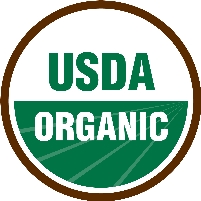Can USDA-Approved “Organic” Labels be Trusted?
Monday, July 06, 2009

As the fastest growing segment of the food industry, organic products now constitute a $23 billion a year market, thanks to half of the adult U.S. population buying organic some of or all the time. But flip-flopping by the federal government is starting to cause the branding of “organic” to lose its validity, experts warn.
Only three years ago, the U.S. Department of Agriculture banned synthetic additives from organic baby formula because they violated federal standards for products carrying the organic label. But now almost all organic baby formula carries the same additives, after a USDA official, Barbara Robinson, succumbed to lobbying by formula makers and overruled department experts.
This decision is just one among a handful by the USDA that have allowed companies to use the green-and-white “USDA Organic” seal on products that contain non-organic ingredients. These include grated organic cheese that has wood starch in it to prevent clumping, organic beer made from non-organic hops, and organic mock duck that contains a synthetic ingredient to give it an authentic quality.
The USDA inspector general’s office is now investigating whether products carrying the label meet national standards, and if the department is doing an adequate job of overseeing private certifiers hired by farmers and food producers to stamp their products “organic.”
-Noel Brinkerhoff
Purity of Federal 'Organic' Label Is Questioned (by Kimberly Kindy and Lyndsey Layton, Washington Post)
National Organic Program (United States Department of Agriculture)
- Top Stories
- Unusual News
- Where is the Money Going?
- Controversies
- U.S. and the World
- Appointments and Resignations
- Latest News
- Can Biden Murder Trump and Get Away With it?
- Electoral Advice for the Democratic and Republican Parties
- U.S. Ambassador to Greece: Who is George Tsunis?
- Henry Kissinger: A Pre-Obituary
- U.S. Ambassador to Belize: Who is Michelle Kwan?






Comments